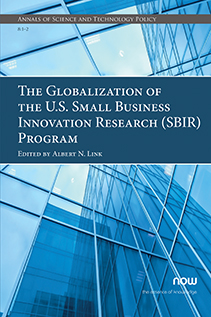Drivers of Entrepreneurial Performance: An Assessment of the PIPE Program in Brazil
By Gustavo Hermínio Salati Marcondes de Moraes, University of Campinas, Brazil | Bruno Brandão Fischer, University of Campinas, Brazil | Sergio Salles-Filho, University of Campinas, Brazil | Nicholas Vonortas, The George Washington University, USA, vonortas@gwu.edu
Abstract
Knowledge-intensive entrepreneurial firms (KIE) represent a core part of this specific cohort of SMEs. Scientific capabilities need to be translated into market skills that allow creating R&D skills oriented towards innovation. This can be achieved through strategic decisions and deployments that facilitate the creation, sharing, and transfer of the company’s knowledge base. Plus, strategic commitment to R&D can play multiple roles throughout the initial stages of KIE ventures: it enables the establishment of alliances, exploitation of external knowledge, and, as expected, new product development. The success of KIE ventures in Brazil is traceable to the PIPE Program (the acronym stands for Technological Innovation in Small Business), an initiative from the Research Foundation of the State of São Paulo, Brazil. This initiative dates back to 1997 and it follows a similar structure to that of the Small Business Innovation Research (SBIR) program in the US.
The Globalization of the U.S. Small Business Innovation Research (SBIR) Program
The Globalization of the U.S. Small Business Innovation Research (SBIR) Program presents how SBIR programs have spread across the globe. The U.S. SBIR program has become a template for legislation in other countries that seek to enhance the innovative nature of small firms. This special issue presents works by leading eminent scholars who describe individually the population of international emulated programs. The works are ordered by the date that the country adopted an SBIR-like program, including Turkey (1995), Australia (1996), Brazil (1997), South Korea (1998), Japan (1999), Taiwan (1999), United Kingdom (2001), The Netherlands (2004), and New Zealand (2012).

Companion
Annals of Science and Technology Policy, Volume 8, Issue 1-2 Special Issue: The Globalization of the U.S. Small Business Innovation Research (SBIR) Program
See the other articles that are also part of this special issue.